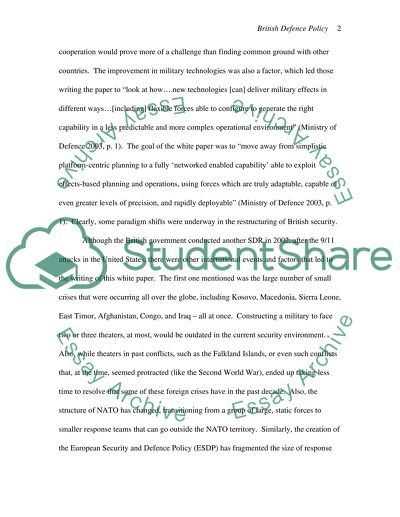Cite this document
(“British Defence Policy Essay Example | Topics and Well Written Essays - 1500 words”, n.d.)
Retrieved from https://studentshare.org/politics/1518863-british-defence-policy
Retrieved from https://studentshare.org/politics/1518863-british-defence-policy
(British Defence Policy Essay Example | Topics and Well Written Essays - 1500 Words)
https://studentshare.org/politics/1518863-british-defence-policy.
https://studentshare.org/politics/1518863-british-defence-policy.
“British Defence Policy Essay Example | Topics and Well Written Essays - 1500 Words”, n.d. https://studentshare.org/politics/1518863-british-defence-policy.


